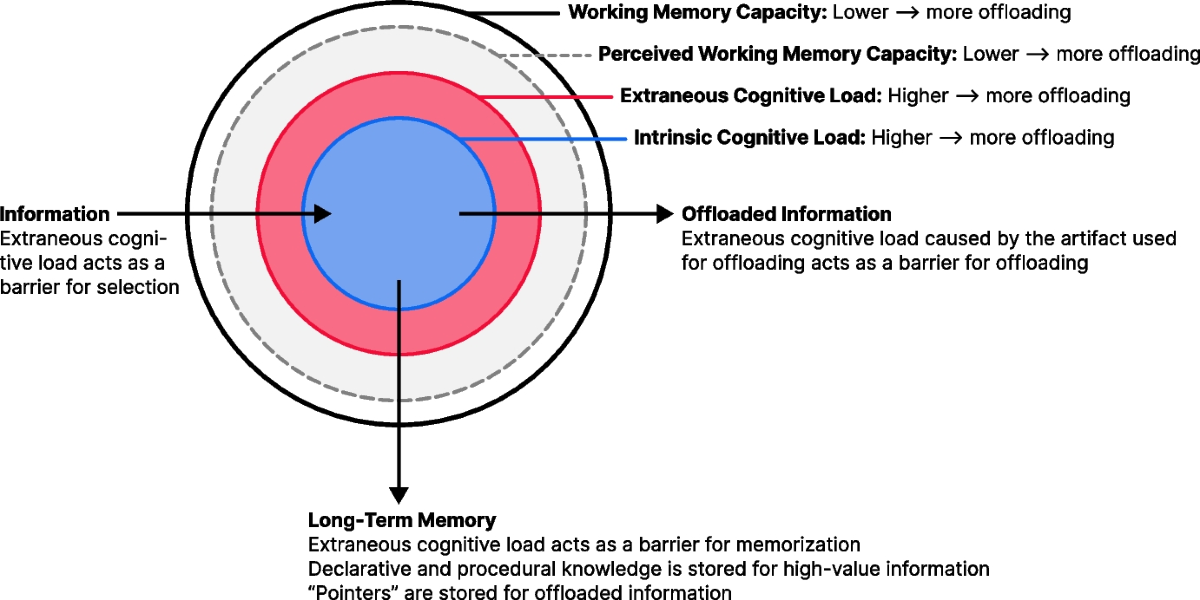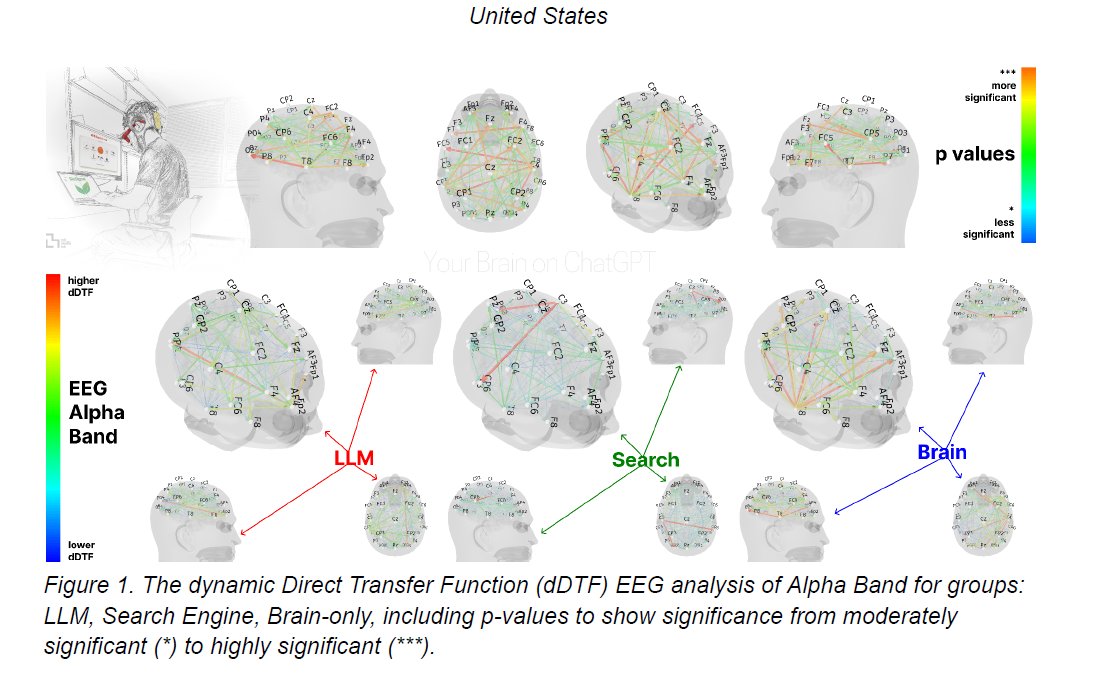MIT Study Warns: ChatGPT Could Be Lowering Your Brain Capacity...
In June 2025, researchers from the MIT Media Lab published a study called Your Brain on ChatGPT. It looked into a growing concern: is using AI to write for us slowly making our brains less active?
The team focused on ChatGPT and how it affects memory, brain activity, and the feeling of ownership when we write. With more students and professionals turning to AI tools for writing, studying, and even thinking, it’s an important question: Are we learning with AI—or letting it think for us?

Research Methods and Findings
To find out, researchers recruited 54 students and recent grads (ages 18–39) from top U.S. universities like MIT, Harvard, Tufts, and Wellesley. They divided them into three groups:
- All three groups wrote SAT-style essays across three sessions. In a surprise fourth session, some switched roles: ChatGPT users had to write without help, while some from the brain-only group used ChatGPT for the first time.
- Throughout, participants wore EEG headsets to measure real-time brain activity.
The results were clear. The more help participants had from outside tools, the less their brains had to work. The brain-only group showed the most active and connected brain patterns. The ChatGPT group, by contrast, showed the lowest brain activity—up to 55% lower, according to the EEG scans. Even when ChatGPT users were later asked to write on their own, their brains stayed in “low gear.”
Impact on Brain Connectivity and Memory
Interestingly, when brain-only users switched to ChatGPT, their brain activity actually increased slightly—possibly because they were curious about using something new. But over time, the data suggests this boost fades as people get used to letting the AI take over.
Essays written with ChatGPT often looked polished—clean grammar, good structure, and high scores from AI-based graders. But human English teachers could tell something was missing. There was another big problem: memory. Many ChatGPT users couldn’t even remember the main point of what they had just written.

Despite these limits, the core message is still worth paying attention to—especially for educators and parents. Future research should look at how AI affects different age groups, especially children and teens. It’s also important to study other types of AI use to understand their impact on the brain.
For now, the key takeaway is balance. AI can save time and help us work faster, but it shouldn’t take over our thinking. The goal is to stay engaged, stay curious, and make sure we’re still doing the hard part—learning.
Conclusion
The rise of AI tools like ChatGPT has made tasks like writing, researching, and brainstorming easier than ever—but that convenience comes with a deeper question: what happens when we stop needing to struggle? The real danger isn’t that ChatGPT makes us dumb—it’s that we stop noticing when we’re not thinking anymore.

So the question isn’t “Should we ban AI?” but “How do we stay sharp in a world where thinking is optional?” The answer, as always, starts with awareness. Use the tools—but don’t forget to use your mind.










